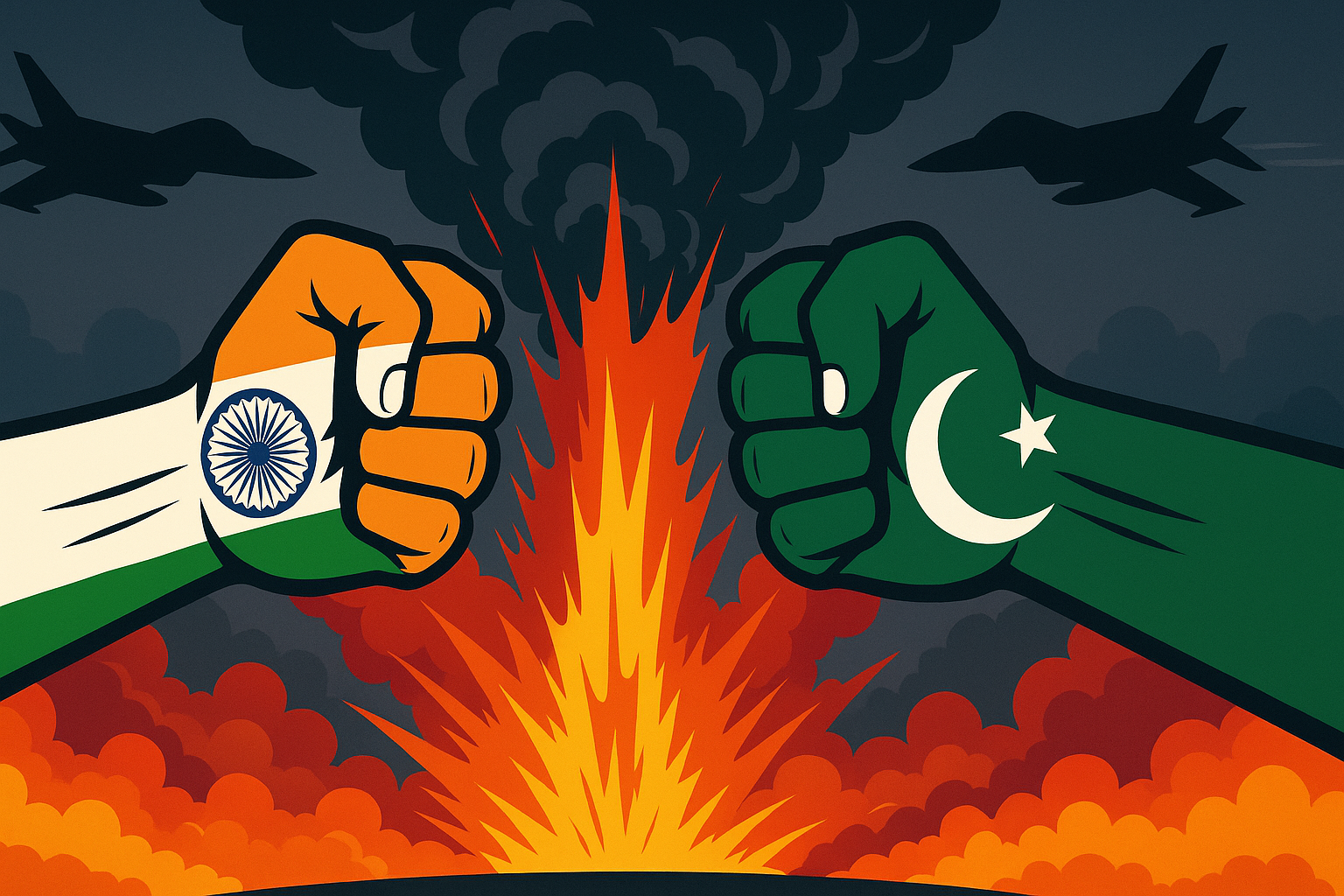MODI'S 'JUSTICE' vs. FEAR OF WAR: What Ordinary Nepalis (and Our Govt) REALLY Think About 'Operation Sindoor'!

As dust begins to settle – or perhaps ignite further – following India's 'Operation Sindoor' airstrikes against alleged militant targets in Pakistan and Pakistan-administered Kashmir, Nepal finds itself in a precarious position, with citizens and policymakers alike watching nervously for the potential aftershocks in the region. The strikes, framed by New Delhi as delivering "justice" for the victims of the horrific Pahalgam terror attack which included a Nepali national, have dramatically escalated tensions with Pakistan, prompting a wave of speculation about Nepal's response.
Official Stance: A Call for Calm Expected
While an immediate, detailed official statement from the Nepali government on 'Operation Sindoor' is still awaited, diplomatic observers anticipate Kathmandu will tread carefully. Nepal typically maintains a non-aligned foreign policy, especially concerning disputes between its two large neighbours. It's expected that any formal response would likely emphasize:
- A call for de-escalation and restraint from both India and Pakistan.
- Support for dialogue and peaceful resolution of outstanding issues.
- Grave concern for regional peace and stability, highlighting how conflict impacts all of South Asia.
- A reiteration of Nepal's condemnation of terrorism in all its forms. This aligns with Prime Minister K.P. Sharma Oli's swift condemnation of the Pahalgam attack in April and his reported expression of support to Indian Prime Minister Narendra Modi in India's fight against terrorism.
- Concern for the safety and security of any Nepali citizens potentially affected by the heightened tensions.
Given the tragic loss of a Nepali life in the Pahalgam attack – an event India directly linked to its military action – it is seen as highly unlikely that Nepal's official stance would appear to side against India's stated counter-terrorism objectives, even as it calls for broader regional peace. Some political commentators have noted that maintaining delicate diplomatic ties with New Delhi is a continued priority for the current Nepali administration.
Potential Domestic Reactions: A Spectrum of Sentiments
The Nepali public and political sphere could witness a range of reactions:
- Public Sentiment: For many Nepalis, particularly the family and community of the Pahalgam victim, India's assertion that "justice is served" might resonate, viewing 'Operation Sindoor' as a decisive response to a brutal act of terror. However, this could be overshadowed by widespread fear of a larger India-Pakistan conflict, which would have devastating consequences for the entire region, including Nepal's economy and stability. The human cost of the initial Pahalgam attack remains a raw wound, and the prospect of further violence is deeply unsettling.
- Political Arena: Different political parties in Nepal may voice varied opinions. Some, particularly those with communist leanings who have historically been critical of perceived Indian influence or who maintain ties with Pakistan or China, might organize demonstrations in Kathmandu, possibly around areas like Maitighar Mandala. These could call for peace, condemn the escalation, or express solidarity with Pakistan. It's also plausible that groups with pro-China affiliations, given China's significant investments in Pakistan and Pakistan-administered Kashmir, might join calls for regional stability, potentially framing the situation through a lens of geopolitical balance.
- Media Landscape: Nepal's diverse media is likely to reflect this spectrum of views. Some outlets may focus on the cross-border terrorism angle and the narrative of justice for the Pahalgam victims. Others might critically examine the risks of military escalation, the humanitarian impact, and Nepal's diplomatic tightrope walk. There are concerns that some media entities, potentially with known ideological leanings, might disseminate content critical of India's actions, possibly echoing narratives from Pakistan. This underscores the challenge of navigating information in such a charged environment.
The China Factor
China, a key ally of Pakistan with substantial investments in the region, including through the China-Pakistan Economic Corridor (CPEC) which passes through disputed territories, will be closely watching the developments. Beijing typically calls for restraint and dialogue in such situations. Any statement from China would likely emphasize the need to maintain regional peace and stability, possibly subtly hinting at the security of its own strategic interests.
A Nation Holding its Breath
Ultimately, as a nation nestled between two nuclear-armed giants, Nepal's primary interest lies in the swift de-escalation of tensions. The memory of past conflicts and the recent tragic loss of its own citizen in a terror attack serve as painful reminders of the human cost of instability. While some in Nepal may find a degree of solace in India's strong response to the Pahalgam horror, the overarching sentiment is likely to be one of profound anxiety and a fervent hope that dialogue prevails over further military confrontation. The coming days will be crucial in determining whether the region steps back from the brink or slides further into a dangerous conflict.
Operation Sindoor
![From Kathmandu to the World: How Excel Students Are Winning Big [Admission Open]](https://nepalaaja.com/img/70194/medium/excel-college-info-eng-nep-2342.jpg)
